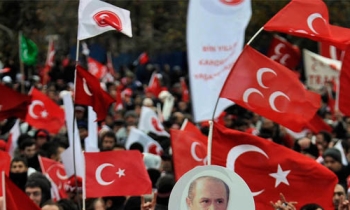The Committee to Protect Journalists (CPJ) has delpored deplores the Tunisian government’s apparent censorship of the opposition weekly Al-Mawkif.
Over the past month, Tunisian authorities have prevented distribution of four successive issues of Al-Mawkif, published since 1984 by the opposition Progressive Democratic Party (PDP). Rachid Khechana, editor of Al-Mawkif, told CPJ that plainclothes police have seized copies of the newspaper at kiosks throughout the country. In a statement, the newspaper said authorities have acted “without any judicial or legal ground.”
“We deplore the ongoing harassment and censorship of Al-Mawkif and call on the Tunisian government to put an end to it at once,” CPJ Executive Director Joel Simon said.
The censorship comes at a time when Al-Mawkif facesa major civil defamation lawsuit, a case that Khechana claims is politically motivated.
Khechana told CPJ that five companies that market cooking oil filed a lawsuit against the weekly this month, alleging that the paper “spread false news” and “harmed their interests.” Ahmed Nejib Chebbi, the paper’s managing editor, and Khechana have been summoned to appear in court on May 10. Each company seeks 100,000 Tunisian dinars (US$87,000) in damages.
The lawsuit was triggered by an April 4 opinion piece by Khechana that called for a transparent investigation into allegations that contaminated Tunisian cooking oil was illegally exported to neighbouring Algeria. The April 4 edition was among those seized by police.
Chebbi, the paper’s managing editor, plans to run for president in 2009 against incumbent Zine El Abidine Ben Ali—a bid that has been covered in the pages of Al-Mawkif. Tunisian law has been tailored to prevent political figures critical of Ben Ali from running for president. Al-Mawkif has also produced critical coverage of the cost of living, unemployment, and social unrest in the south of the country.
In September 2007, Chebbi and Maya Jribi, secretary-general of the PDP, went on a long hunger strike to denounce what they called “the systematic exploitation of the judicial system by the government to silence all opposition voices.” The hunger strike came to an end when a politically motivated court case was dropped. The case was aimed at evicting Al-Mawkif from the premises it has been using in downtown Tunis since 1994.









